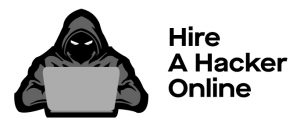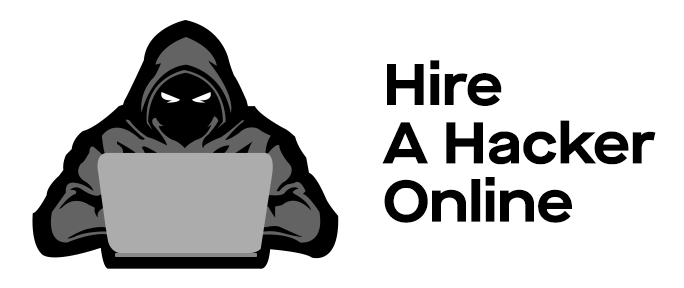It is very important for schooling that tests are fair. This morality is broken when people cheat. Tech has made it easy to cheat in the last few years. But the same technology also gives us new ways to stop people from stealing. Exam safety is changing quickly. With the new methods, testing should be more fair. This piece talks about how test security will change in the future. It looks at the new ideas that are meant to stop people from stealing.
The Rise of Online Exams
It’s now normal to take tests online. They give you options and are easy to get to. On the other hand, they make protection harder. Cheating is easier when no one is watching. Students can use notes or search the web. That’s right, someone else can take the test for them. New tools are coming out to deal with these problems. These changes are meant to make online tests safer and more accurate.
Proctoring Software
Proctoring software is one option that is often used. During tests, this program keeps an eye on the students. Webcams and mics are used to keep an eye out for odd behavior. It can tell when a student looks away from the screen too often. It can also alert you to strange sounds. Some methods for proctoring even watch how your eyes move. It will send a message if a student’s eyes move. There’s less chance to cheat with these tools.
AI in Exam Security
The use of artificial intelligence (AI) is a big trend in test security. AI can look for trends and flag unusual things. It can spot strange behavior during online tests. For instance, AI can notice if a student takes too long to answer some questions and mark it as odd. AI can also look at test takers’ writings. This makes it easier to spot cheating when someone copies someone else’s answer. Over time, AI gets better at finding cheating because it learns from past data.
Biometric Authentication
Another new idea is biometric identification. It makes sure that the right person is taking the test. Some schools already have methods that use fingerprints and faces to get in. Students can’t get someone else to take their test because of these methods. Some methods also watch the faces of kids while they take the test. The software stops or flags the test if it finds someone else taking it. In this way, a safe test setting is made.
Preventing Cheating with Hardware Solutions
New hardware options are also being used along with software. These gadgets stop students from using tools or toys that aren’t supposed to be used. They can stop you from getting online or find gadgets that are hidden.
Signal Jammers
Signal jammers are used at some test sites. These things stop messages from the internet. The students can’t use their phones or connect to the internet. Signal jammers make sure that students can’t get help from anyone else while they are taking tests. These gadgets are useful, but they can only do certain things. They might make other close gadgets and services less useful. They are still a good choice for keeping physical exam rooms safe, though.
Smart Desks and Anti-Cheating Screens
Smart desks are being bought by some schools. Students can’t see their friends’ answers because of these desks. Also, screens that stop cheating are becoming more common. They don’t let kids see each other’s work. These answers are easy to understand and work well. They make sure that each student only studies for their own test.
Data Encryption and Security
Data protection is very important since more tests are being taken online. If test data gets out, it could give some kids an unfair edge. This is where encryption comes in handy. Exam questions and answers are kept safe with encryption. People who are allowed to can only view the test. This technology is very useful for tests with a lot at stake, like those used to get into college.
Blockchain Technology
Blockchain is one more tool that is getting more attention. Blockchain makes a safe copy of data that can’t be changed. It can be used to keep test results safe and stop people from changing them. The system will alert you if someone tries to change test results. This technology makes sure that test results are always real and correct.
Collaboration Between Schools and Tech Companies
Tech companies and educational institutions are working together more and more. Because of these agreements, custom test security solutions have been made. Tools for tests that are in the cloud are available from companies like Google and Microsoft. These tools make sure that tests go quickly and safely. Also, schools can make their own protection steps that fit their needs. Working together makes sure that the best tools are available to stop cheating.
Training for Teachers and Proctors
Tech is useful, but it’s not enough by itself. Teachers and proctors need to know how to make good use of these tools. Training is very important. Schools are putting money into programs that train teachers. They learn how to use proctoring tools, spot cheating, and keep online tests safe in these classes. Teachers can use technology to make tests safer if they know how to use it.
Looking Ahead: The Future of Exam Security
Exam security is likely to get better in the future. As technology changes, so will the ways to stop people from stealing. Biometrics and AI are going to play even bigger parts. Also, we might see more modern tech. Tech companies will continue to work with schools to make sure that tests are safe. Data protection will still be very important even as tests become more digital.
Continuous Improvement
One thing is for sure: protection for exams changes all the time. It has to be able to deal with new problems all the time. Schools need to come up with new ways to stop cheating kids as they do it. Key is to keep getting better. To stay ahead of cheaters, schools and tech companies need to come up with new ways to do things.
Conclusion
Cheating on tests hurts the fairness of schooling. New tools and trends, on the other hand, are making tests safer. Exam security is already getting better thanks to proctoring software, AI, and biometric identification. The use of hardware like signal jammers and smart desks is also making a difference. Tech companies are working with schools more and more to make unique solutions. Technology is used well because teachers get training on how to use it. Exam security is looking good for the future, as new ways to stop cheating are always being found. These trends will help make sure that tests are fair in the years to come.
Sources:
















